What Are Your Legal Rights When You Slip and Fall?
Unfortunately, slip and fall accidents are common occurrences in the busy stores and parking lots of South Florida. If you slip and fall on someone else’s property, and your fall was caused by an unsafe condition, you may be able to recover against the property owner.
Some of the most common situations that lead to slip and fall accidents are:
Unexpected obstacles, such as debris or fallen merchandise
Wet, slippery surfaces, such as a spill
Negligently-maintained parking lots with potholes
Faulty construction equipment
Depending on the situation, slip and fall accidents can cause their victims to suffer bruises, broken bones, spine and brain injuries, and dislocated joints. Also, a slip and fall accident is potentially the basis for a claim for property damage and emotional distress.
Slip and fall accidents cases a type of personal injury law that deals with the liability of the owner or manager of the property on which the accident occurred.
When is the property owner at fault?
Florida premises liability law provides that property owners owe a duty of care to their visitors to maintain their property in a reasonably safe condition. This duty requires a property owner or manager to monitor his property regularly for unsafe conditions and address problems quickly once they arise.
For example, a supermarket owner’s duty of care may include posting a yellow cone to warn consumers about a freshly-mopped floor and to send employees to patrol the store regularly to spot hazards.
To whom does the property owner owe a duty of care?
The rights of the victim of a slip and fall against an owner of property depend on the status of the victim with regard to the property. Florida law provides that a property owner owes a high duty of care to maintain his property in safe condition to business guests (invitees) and social guests (licensees). A property owner , however, has a much lower duty of care to a trespasser.
For example, a property owner is not required to protect an undiscovered trespasser from a known danger. A property owner can , however, be held liable for intentionally injuring a trespasser.
Proving your Slip and Fall Case
Nearly all slip and fall cases are based on a negligence theory of liability. In order to prove negligence, you must prove all 4 of the following elements:
1. Duty: The property owner had a duty to you to maintain his property in a safe condition.
2. Breach: The owner breached his duty of care by causing or allowing a hazardous condition to occur.
3. Causation: the hazardous condition caused your fall and the injuries that resulted.
4. Damages: You suffered measurable damages ( medical bills, lost pay).
The law states that an owner is negligent if he knew or should have known about a hazardous condition that caused a slip and fall. The standard by which the owner’s behavior is judged is what a reasonable property owner would do in a similar situation.
Preserving Evidence
Obtaining and preserving evidence is an especially difficult issue in slip and fall cases. If you have slipped and fallen and suffered a serious injury, taking pictures of the hazard and gathering evidence are usually the last things on your mind. Evidence of the hazard as well as proof that the hazard caused you to fall and suffer injuries, however, are necessary for your case. Other evidence that may be needed to prove your slip and fall claim includes maintenance records, video surveillance footage, and past cases involving the same owner or property.
If you find yourself in a slip and fall situation, you should first seek medical attention. Your next step should be to talk to any witnesses that may have observed the accident and get their contact information. Find out if they took photos or video of the incident. You should also photograph the hazard that caused your accident, if it has not already been removed. Also, let the property manager or owner know that you have been injured.
Finally, you should contact a personal injury lawyer while you are still on the scene of the accident. An experienced personal injury lawyer can send out an investigator to the scene immediately who can interview witnesses and make sure that evidence is properly preserved.
Comparative Negligence
Florida law provides for the apportionment of damages between the defendant and plaintiff in a personal injury case based on the fault of each party. This means that if you sue a property owner for your injuries and the court finds that you played some role in causing the accident, the court is required to determine the percentage of fault of each party. The court is also required to reduce the damages you recover from the defendant by the percentage of your fault.
If you are involved in a slip and fall, you should call an experienced personal injury lawyer immediately to assist. The property owner and his insurance company work hard to avoid liability for slip and falls. John Clarke is a Fort Lauderdale personal injury lawyer who handles slip and fall cases. Call John Clarke at (954) 556-8952 for a free consultation today!

